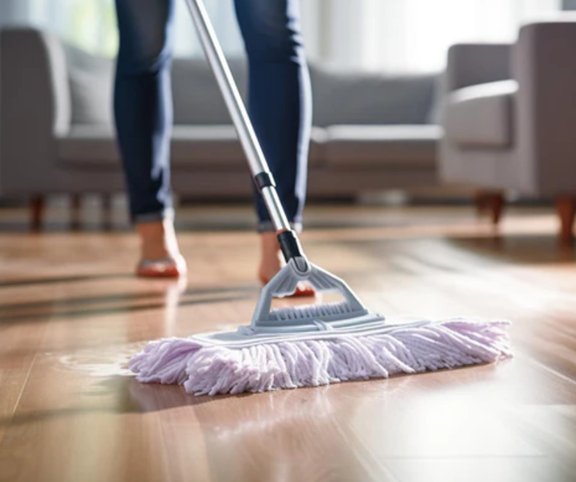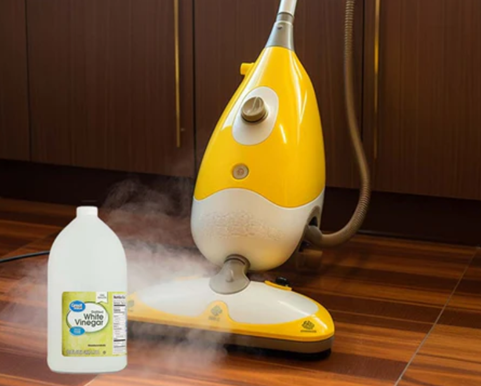Many people wonder, can you put vinegar in a steam mop, and if vinegar can enhance the cleaning power of their steam mop. While vinegar can be beneficial in some cases, it must be used with great care and only after reviewing the steam mop’s manual for compatibility. This article explores the benefits of using vinegar, the accompanying risks, dilution methods, safe surfaces for use, and important guidance from manufacturers. If you're also curious about how to get rid of dog smell in house, vinegar might offer some odor-neutralizing benefits in your cleaning routine.

Vinegar is widely recognized for its disinfectant properties. Its mild acidic nature effectively kills germs and neutralizes odors, making it a favorite eco-friendly cleaning option. Using vinegar can reduce reliance on harsh chemicals, offering a safer, more natural cleaning solution for households with children or pets. It's also helpful if you’re looking for solutions on how to get rid of dog smell in house, as it neutralizes pet-related odors.
When properly diluted, vinegar can help break down stubborn grime on hard surfaces such as tile, laminate, sealed hardwood, and vinyl. Vinegar’s acidity helps dissolve dirt and grease buildup, enhancing the cleaning ability of your steam mop and leaving floors sparkling clean. This solution is ideal for busy homes, especially those battling lingering pet smells and daily messes from foot traffic or spills.
Despite its cleaning prowess, vinegar carries risks. Its acidic nature can corrode internal components of steam mops, like seals, hoses, and heating elements. Over time, this can reduce the device’s effectiveness or lead to premature failure, making it an expensive mistake. Always weigh the long-term cost against the short-term cleaning boost vinegar might offer.
Many manufacturers strongly advise against using vinegar and other additives besides water. Doing so could void your steam mop’s warranty, which may leave you without support if repairs are needed. These cautions are typically stated in user manuals and customer service notices, stressing the importance of following approved usage guidelines.
Before incorporating vinegar, always consult your steam mop’s manual. Different models have varied guidelines on vinegar use and the types of flooring it supports. Ensuring compatibility helps prevent damage, protect warranties, and maintain the overall efficiency of the device. Never assume vinegar is safe without double-checking.
Proper dilution is crucial for safe use. A common recommendation is a 1:1 or 1:3 water-to-vinegar ratio. For best results, use filtered or clear vinegar and only distilled water in your steam mop. Also, ventilate the room during use and rinse the mop thoroughly afterward to avoid any lingering vinegar odor or residue. These tips are especially helpful for anyone trying to learn how to get rid of dog smell in house without harsh chemicals.
Vinegar can be safely used on sealed surfaces like tile, vinyl, laminate, and sealed hardwood. These materials don’t react adversely to vinegar’s acidity, making it a practical cleaning aid for most common flooring types. Just ensure the seal is intact to avoid underlying damage or long-term surface wear.
Avoid using vinegar on natural stone surfaces such as marble and granite, as well as unsealed wood, porous grout, and cracked tiles. These materials can suffer etching, discoloration, or structural damage from prolonged acid exposure. Always test a small, hidden area before applying vinegar across an entire surface.

Consider alternatives such as using distilled water alone, manufacturer-approved cleaning solutions, or adding essential oils externally for fragrance. If vinegar isn't compatible with your mop, you can also mop floors manually with diluted vinegar using a traditional bucket and cloth. These options offer safe alternatives for those wanting natural cleaning without device damage.
In summary, vinegar can safely enhance your steam mop’s cleaning capabilities if used on compatible floors and with approved models. It does, however, pose risks such as potential damage and voided warranties. Always check your steam mop’s manual, dilute vinegar properly, rinse thoroughly, and consider safer cleaning alternatives when advised. If you’re also tackling persistent issues like how to get rid of dog smell in house, vinegar may help—but only when used smartly and safely.